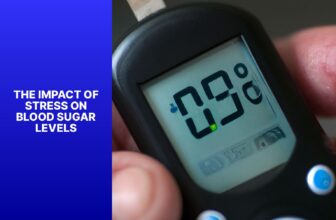Discovering the Surprising Role of Glucose-Sensing Neurons in Hypoglycemia Unawareness
Uncovering the Role of Hypothalamic Glucose-Sensing Neurons in Hypoglycemia Unawareness
Hypoglycemia unawareness is a condition in which individuals with diabetes are unable to recognize the onset of hypoglycemia, or low blood sugar. This can lead to serious health complications, including seizures and coma. Recent research has uncovered a potential role for hypothalamic glucose-sensing neurons in the development of hypoglycemia unawareness.
Hypothalamic glucose-sensing neurons are located in the hypothalamus, a region of the brain that is responsible for regulating many bodily functions, including hunger, thirst, and body temperature. These neurons are sensitive to changes in glucose levels and can detect when blood sugar is low. When this occurs, the neurons send signals to the brain to release hormones that raise blood sugar levels.
In individuals with diabetes, these neurons may become desensitized to low glucose levels, leading to hypoglycemia unawareness. This desensitization may be caused by prolonged exposure to high glucose levels, which can cause the neurons to become less responsive to low glucose levels.
To test this hypothesis, researchers conducted a study in which they examined the hypothalamic glucose-sensing neurons of mice with diabetes. They found that the neurons of the diabetic mice were less responsive to low glucose levels than those of healthy mice. This suggests that desensitization of these neurons may be a contributing factor to hypoglycemia unawareness.
Further research is needed to confirm the role of hypothalamic glucose-sensing neurons in hypoglycemia unawareness. If confirmed, this could lead to new treatments for this condition, such as drugs that target these neurons and restore their sensitivity to low glucose levels. This could potentially reduce the risk of serious health complications associated with hypoglycemia unawareness.
Exploring the Potential of Hypothalamic Glucose-Sensing Neurons to Treat Hypoglycemia Unawareness
Hypoglycemia unawareness is a serious medical condition in which individuals with diabetes are unable to recognize the onset of hypoglycemia, or low blood sugar. This can lead to dangerous episodes of hypoglycemia, which can cause seizures, coma, and even death. Recent research has explored the potential of hypothalamic glucose-sensing neurons to treat hypoglycemia unawareness.
Hypothalamic glucose-sensing neurons are located in the hypothalamus, a region of the brain that is responsible for regulating glucose levels in the body. These neurons are sensitive to changes in glucose levels and can detect when glucose levels are too low. When this occurs, the neurons send signals to the brain to increase glucose production and release glucose into the bloodstream.
The potential of hypothalamic glucose-sensing neurons to treat hypoglycemia unawareness has been explored in animal models. In these studies, researchers have found that when the neurons are activated, the animals are able to recognize the onset of hypoglycemia and respond appropriately. This suggests that activating these neurons could help individuals with hypoglycemia unawareness to recognize and respond to low blood sugar levels.
However, further research is needed to determine if this approach is effective in humans. In addition, the safety and efficacy of this approach must be evaluated before it can be used in clinical practice.
Overall, the potential of hypothalamic glucose-sensing neurons to treat hypoglycemia unawareness is promising. Further research is needed to determine if this approach is safe and effective in humans. If successful, this approach could provide a new treatment option for individuals with hypoglycemia unawareness and help to reduce the risk of dangerous episodes of hypoglycemia.
Investigating the Impact of Hypothalamic Glucose-Sensing Neurons on Hypoglycemia Unawareness Symptoms
Hypoglycemia unawareness is a condition in which individuals with diabetes are unable to recognize the symptoms of low blood sugar. This can lead to dangerous episodes of hypoglycemia, which can cause confusion, seizures, and even coma. Recent research has suggested that hypothalamic glucose-sensing neurons may play a role in the development of hypoglycemia unawareness.
The hypothalamus is a region of the brain that is responsible for regulating many of the body’s homeostatic processes, including glucose metabolism. Glucose-sensing neurons in the hypothalamus are responsible for detecting changes in blood glucose levels and triggering the release of hormones that regulate glucose levels. In individuals with diabetes, these neurons may become desensitized to changes in glucose levels, leading to hypoglycemia unawareness.
To investigate the impact of hypothalamic glucose-sensing neurons on hypoglycemia unawareness, researchers have conducted a number of studies in both animal models and humans. In animal models, researchers have found that when glucose-sensing neurons are damaged or removed, animals become less sensitive to changes in glucose levels and are more likely to experience hypoglycemia unawareness. In humans, studies have found that individuals with diabetes who have experienced damage to the hypothalamus are more likely to experience hypoglycemia unawareness than those without such damage.
These findings suggest that hypothalamic glucose-sensing neurons may play an important role in the development of hypoglycemia unawareness. Further research is needed to better understand the mechanisms underlying this condition and to develop treatments that can help individuals with diabetes better manage their blood sugar levels.







